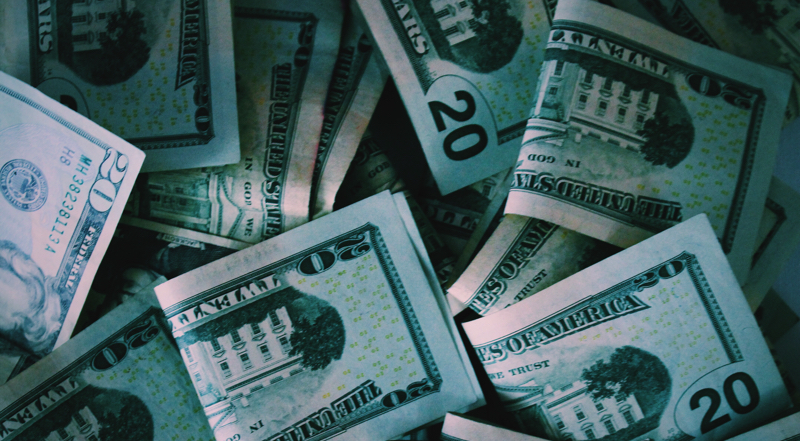
30 Aug It’s All About Money

Margaret A.M. Heine
is the principal counsel at Heine Law Group in Fullerton, California. She is licensed in California and Washington and has authority to practice before the Supreme Court of the United States and the United States Court of International Trade.
Her practice includes estate planning, wills, trusts, and probate as well as business, real estate, and civil litigation. Email: nbylegas@gmail.com or visit company website www.margaretamheine.com.
It’s All About Money
How we handle paying bills, purchasing goods, and manage our money is changing. We have cash, check, credit cards, gift cards, debit cards, online payments, tap and go payments, digital currency … the options continue to grow. Many people are commenting that we are moving to a cashless society as more and more places only accept credit cards or debit cards for transactions. President Biden and several congressional leaders are even promoting digital currency so that government can track wealth, spending and individual transactions among other goals. Here are some things to be aware of in handling your transactions.
What is legal tender in the United States? The official definition is: 31 U.S. Code § 5103 – Legal tender. United States coins and currency (including Federal reserve notes and circulating notes of Federal reserve banks and national banks) are legal tender for all debts, public charges, taxes, and dues. Foreign gold or silver coins are not legal tender for debts. Now, it is important to note that businesses are not required to accept legal tender for payment of goods and services. Which is why merchants can ask for credit or debit card payments or checks only. Payment of goods and services is basically contractual, so payment is made as agreed.
Can legal tender be refused? As just explained, yes, cash does not need to be accepted for payment of goods and services.
When is paper currency not considered legal tender? When paper money is damaged in such a way that at least one-half of the note is missing or the serial number cannot be identified, then the currency can be declined to be accepted by any bank or merchant. The Federal Reserve will not accept any mutilated currency. In essence, the Federal Reserve collects cash from banks, re-circulates the currency and delivers the cash back to banks until the paper currency is so old or worn and fails inspection at the Federal Reserve that it must be destroyed.
Is paper currency dated? Yes it is. On each bill there is a “Series” and then a date—this represents when the bill was printed. Sometimes people encounter trouble using currency that is too new or too old. Too old because it is easy to counterfeit or too new because it is hard to detect a counterfeit on a new bill. When traveling, or going to the casino, you should inspect your paper to avoid taking torn or ripped bills with you as they may be rejected and not accepted. Recently, a client said that a government entity refused to accept payment from them for services because their money was “too old”. Technically, as long as the bill is intact and can be read, it is legal tender.
Can a surcharge be put on a credit card purchase by a merchant? In short, yes. California does have a 2018 law on the books, Civil Code Section 1748.1 under the Beverly Song Credit Card Act of 1971 that would prohibit merchants from adding a surcharge onto any credit card transaction. That law was challenged in court in Italian Colors v. Becerra (9th Cir. 2018) 878 F.3d 1165, and was found to be unconstitutional as to the businesses that challenged the law. However, it primarily agreed that merchants can charge a surcharge to cover the cost of accepting your credit card as payment. This cost is capped at 4% (except Colorado) which is capped at 2%.
Visa, Mastercard and Discover each have explanations on their websites of what surcharges are permitted to merchants accepting their branded cards. In some cases, they do not permit any surcharge, in others, they do.
Any surcharge must be shown on your receipt as a separate line item. A surcharge must also be posted so that you are aware of the surcharge prior to purchasing your items.
Then what about convenience fees? Convenience fees are not tied to the actual cost of processing a payment. It is a fee that is acceptable to be charged by a merchant for accepting a form of payment other than cash usually. For example, paying online instead of with cash or a check—it is an implied agreement that you will pay for the privilege of having the bill paid that day without of the necessity of being in person. Once again, people must be made aware that there is a convenience fee.
What about prepaid cards or debit cards? Under the Dodd-Frank Wall Street Reform and Consumer Protection Act, Durbin Amendment of 2011, a surcharge cannot be imposed on a prepaid card or a debit card. However, this has been hotly contested, and although it has not been replaced, you will see my online payments still charging a “convenience fee” for the use of a debit or bank card. In essence, this amendment was supposed to reduce the cost of processing debit card transactions to banks, and instead it backfired, making it very costly for small businesses to accept debit cards for small amount transactions. It is because of this that many businesses have a minimum transaction amount before using your card. The law states that the minimum transaction amount must be under $10, however, state law dictates the particulars, and in many cases, it is still viewed as a contract between the merchant and the purchaser as to the agreed minimum amount.
Can merchants give cash discounts? Yes. This is seen every day at the gas pump. Normally, cash discounts cannot exceed 5%. So, the difference between a cash price and a credit price should fall below that threshold.
When traveling internationally can there be a surcharge in the foreign country? Yes. This fee will be different from the foreign transaction fee or the currency fees. It is determined by each country. In EU countries, Switzerland, and the U.K., the Payment Services Directive (PsD2) does not permit surcharges on credit card transactions. So, you should not be charged those in those countries. Brazil is very highly regulated by the government, and these charges are prohibited in Brazil to encourage the use of credit cards to pay debts and purchase goods. You will see these charges in Australia, New Zealand, Mexico, Canada, Russia and most Asian countries. It is up to each merchant as to whether they choose to charge the surcharge or not. Local law determines the maximums permissible.
You may find additional information on the California Attorney General, Rob Bonta, website (oag.ca.gov/consumers/general/credit-card-surcharges); Federal Reserve website www.federalreserve.gov; Visa.com; Mastercard.com; and Discover.com.




Sorry, the comment form is closed at this time.